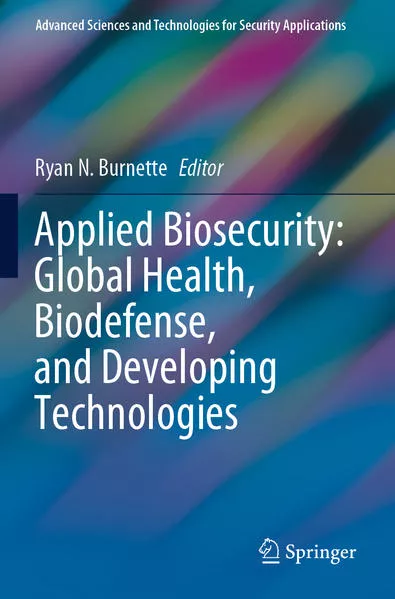
- Publikationen ca: 1
- Buchbewertungen ca: 2
- Fragen & Antworten
Ryan N. Burnette
Ryan N. Burnette, Ph.D. is an international practitioner of biorisk management, biocontainment laboratory operations consulting, and biodefense initiatives. He has worked with domestic agencies, foreign governments, academia, healthcare, industry, and independent laboratory programs in more than thirty countries across Southeast Asia, Africa, the Caribbean, Latin America, and Europe. He has led national and international biological threat reduction programs and supported the development of biosecurity programs at multiple national laboratories, academic medical research centers, and biopharmaceutical production enterprises. Dr. Burnette’s portfolio includes efforts with the U.S. Centers for Disease Control and Prevention, the U.S. Department of Homeland Security, the U.S. Department of Agriculture, and the U.S. Department of Defense, all focused on building and instituting comprehensive biosafety and biosecurity programs. Dr. Burnette has published in the fields of molecular biology, endocrinology, biosafety, biosecurity, and infectious diseases and is the author and editor of one of the most recognized volumes in the field of biosecurity, “Biosecurity: Understanding, Assessing, and Preventing the Threat,” published in 2013. Dr. Burnette has held positions in the Departments of Biology and Biochemistry at Virginia Tech as well as the Department of Molecular Physiology and Biophysics at Vanderbilt University School of Medicine. He is currently a Vice President at Merrick & Company, a Colorado-based consulting corporation, where he oversees the Life Sciences practice from Merrick’s branch office in the Washington, D.C. area.
Applied Biosecurity: Global Health, Biodefense, and Developing Technologies
This book describes an adaptable biothreat assessment process to complement overall biorisk management programs, incorporating threat management and the unique natures of biological assets. Further, this book examines the nexus between public health, international security, and developing technologies, building a case for augmenting biosecurity to levels beyond the laboratory constraints.
